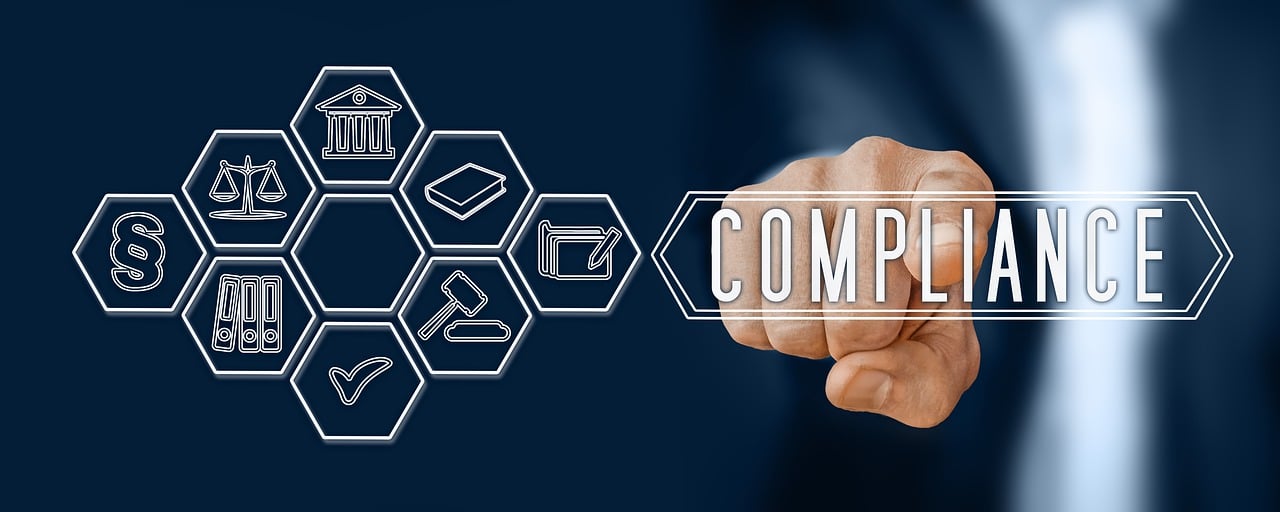In modern organizations, data is an invaluable resource that supports decision-making and drives operational efficiency. However, the accumulation of data brings about a set of regulatory compliance obligations that organizations must adhere to.
Two notable regulations in this context are the General Data Protection Regulation (GDPR) from the European Union and the Health Insurance Portability and Accountability Act (HIPAA) in the United States.
GDPR aims to ensure the privacy and protection of individuals’ data across various sectors, while HIPAA is tailored to safeguard personal health information within the healthcare domain. There are many challenges in meeting GDPR and HIPAA compliance rules. In this article, we’ll explore these challenges and see how Data Archiving can help in following these rules.
How Data Archiving Helps Overcome Compliance Challenges
Navigating the compliance landscape embodied by GDPR and HIPAA is a complex endeavor. Organizations are required to maintain a delicate balance between accessible data management and stringent data protection. Here, data archiving emerges as a pivotal strategy.
It offers a structured methodology for securely storing, managing, and retrieving data, aligning with the regulatory mandates of GDPR and HIPAA. Effective data archiving practices can significantly alleviate the compliance burden, ensuring data is securely housed, readily accessible, and managed in a manner congruent with legal and regulatory stipulations.
As this discussion unfolds, the integral role of data archiving in facilitating regulatory compliance will become increasingly apparent, underscoring its significance in the contemporary data governance framework.
Understanding the Key Requirements
Navigating the compliance landscape requires a solid grasp of the fundamental requirements laid down by GDPR and HIPAA. Let’s uncover the core provisions of these regulatory frameworks to comprehend the compliance pathway better.
Core provisions of GDPR:
The GDPR establishes a framework for data protection and privacy in Europe. Here are the key principles and provisions under this regulation:
Data Protection Principles:
GDPR sets out key principles that organizations must follow when collecting and handling personal data. These include ensuring the data is processed lawfully, fairly, and in a transparent manner. It also mandates that data be collected for specified, explicit, and legitimate purposes and be kept accurate and up-to-date.
Rights of Data Subjects:
Individuals have certain rights regarding their data under GDPR. These rights include the ability to access their data, have inaccuracies corrected, have data erased under certain conditions, and object to or restrict processing.
Data Transfer Regulations:
GDPR has rules for transferring data outside the European Economic Area to ensure that the data remains protected. Organizations need to follow these rules if they are transferring data internationally.
Core provisions of HIPAA:
HIPAA is pivotal in the United States for safeguarding medical information and ensuring it’s handled with utmost confidentiality. Here are its key provisions:
Privacy Rule:
The Privacy Rule sets standards for protecting individuals’ medical records and other personal health information. It applies to healthcare providers, health plans, and healthcare clearinghouses, requiring them to implement safeguards to ensure privacy.
Security Rule:
The Security Rule requires these entities to maintain the confidentiality, integrity, and availability of electronic protected health information. It mandates administrative, physical, and technical safeguards to secure electronic health records.
Breach Notification Rule:
This rule requires organizations to notify affected individuals, the Department of Health and Human Services, and, in some cases, the media if there’s a breach of unsecured protected health information.
Technological Solutions for Compliance:
Navigating through the maze of GDPR and HIPAA compliance requires more than just a manual effort. It demands leveraging technology to streamline, automate, and ensure the accuracy of compliance processes. Various technological solutions have been developed to address the intricacies of these regulations, making the compliance journey more manageable for organizations.
Data Archiving Solutions:
Data archiving solutions are designed to securely store, manage, and retrieve data, making them a vital tool for compliance. Platforms like ShareArchiver go beyond basic archiving by offering features tailored to meet the specific requirements of GDPR and HIPAA. Learn more about the features of ShareArchiver’s data archiving software here.
Encryption and Data Masking Technologies:
Protecting sensitive data is at the heart of both GDPR and HIPAA. Technologies that provide encryption and data masking ensure that data remains unreadable and secure, both in transit and at rest, thus aiding in compliance.
Access Control and Authentication Systems:
Ensuring only authorized individuals can access sensitive data is a cornerstone of compliance. Robust access control and authentication systems help in defining and enforcing who can access what data and when.
Audit Trail and Monitoring Tools:
Being able to demonstrate who accessed or modified data and when it was done is crucial for compliance. Audit trail and monitoring tools provide a documented trail of data access and modifications, which is essential during audits or investigations.
Automated Compliance Reporting:
Automated tools that can generate compliance reports save time and ensure accuracy in reporting. They help organizations in demonstrating their compliance status to regulatory bodies swiftly and efficiently.
Training and Awareness Platforms:
Ensuring that employees are well-informed about compliance requirements and how to adhere to them is crucial. Platforms that provide training and raise awareness about GDPR and HIPAA are valuable in fostering a culture of compliance.
Incident Response Solutions:
In the event of a data breach or other compliance incidents, having a swift and effective incident response solution is crucial to mitigate risks and adhere to regulatory notification requirements.
Cloud-Based Solutions:
Cloud-based compliance solutions offer scalability and remote accessibility and often come with built-in compliance features that ease the burden of adhering to GDPR and HIPAA regulations. ShareArchiver provides a cloud archive solution that significantly aids in managing data efficiently while ensuring compliance with regulatory mandates.
Cost Implications of Compliance and Data Archiving:
The financial aspect of compliance with GDPR and HIPAA regulations, along with implementing data archiving solutions, is a significant consideration for organizations. The journey towards compliance and efficient data management entails both investments and potential cost savings. In this section, we will dissect the cost implications surrounding compliance and data archiving.
Investment in Compliance Infrastructure:
Ensuring compliance with GDPR and HIPAA often necessitates investments in robust data management and security infrastructure. This includes the procurement of data archiving solutions, encryption tools, access control systems, and auditing and monitoring tools.
Cost of Non-Compliance:
The financial repercussions of non-compliance can be steep. Fines levied under GDPR and HIPAA for breaches can be substantial, not to mention the associated legal fees and potential compensation claims. The cost of non-compliance far outweighs the investment in compliance infrastructure.
Operational Efficiency and Cost Savings:
Efficient data archiving can lead to operational cost savings. By archiving infrequently accessed data, organizations can reduce the load on primary storage systems, resulting in faster system performance and lower storage costs.
Reduced Audit and Legal Costs:
An effective data archiving solution facilitates quicker and more accurate data retrieval during audits or legal inquiries. This efficiency can significantly reduce the time and cost associated with audit preparations and legal proceedings.
Training and Awareness Costs:
Organizations need to invest in training and creating awareness to ensure that employees understand the compliance requirements and adhere to the best practices. While this entails a cost, it is a proactive measure that can prevent costly compliance violations.
Maintenance and Upkeep Costs:
The maintenance and upkeep of compliance and data archiving systems also come with associated costs. However, modern solutions like cloud-based archiving can often reduce these costs by offloading maintenance to the service provider.
Return on Investment (ROI) from Compliance and Archiving Solutions:
The ROI from investing in compliance and data archiving solutions can be evaluated in terms of reduced risk of fines, operational efficiency, and the potential for enhanced reputation, which could lead to increased business opportunities.
Scalability and Future-Proofing:
Selecting scalable data archiving solutions can be cost-effective in the long run as they can grow with the organization’s data needs, avoiding the necessity for frequent system upgrades or replacements.
Evaluating Data Archiving Solutions:
Selecting the right data archiving solution is pivotal in simplifying the compliance journey while ensuring data is managed effectively. Various factors come into play when evaluating data archiving solutions, especially in the context of GDPR and HIPAA compliance. In this section, we will explore the key criteria and considerations that should guide the evaluation process.
Compliance Features:
- GDPR and HIPAA Readiness: Assess if the solution has built-in features that address the specific requirements of GDPR and HIPAA, such as encryption, access control, and audit trails. ShareArchiver offers specialized data compliance and security features that are designed to meet these regulatory requirements.
- Regulatory Update Adaptability: Check if the solution can adapt to changes in regulatory requirements, ensuring continued compliance as regulations evolve.
Security and Privacy Controls:
- Encryption and Data Masking: Evaluate the solution’s capabilities in ensuring the security and privacy of data both in transit and at rest.
- Access Controls and Authentication: Assess the robustness of access control and authentication mechanisms to ensure that only authorized individuals can access sensitive data.
Data Retrieval and Management:
- Search and Retrieval Efficiency: Test the efficiency and accuracy of the solution’s search and retrieval capabilities, which are crucial for audits and legal inquiries.
- Data Lifecycle Management: Assess how the solution manages the entire data lifecycle, from creation to deletion, aligning with data retention and disposal requirements. Additionally, data analysis capabilities can provide insightful metrics and trends regarding data usage, which can be vital for making informed decisions.
Scalability and Performance:
- Scalability: Determine if the solution can scale to meet growing data volumes without compromising performance.
- Performance Impact: Evaluate the impact of the archiving solution on the overall system and network performance.
Cost-Efficiency:
- Total Cost of Ownership: Calculate the total cost of ownership, including procurement, implementation, and maintenance costs.
- Return on Investment: Estimate the potential return on investment through improved operational efficiency and reduced risk of compliance violations.
Vendor Support and Training:
- Support Availability: Check the availability and quality of vendor support, ensuring that assistance is available when needed.
- Training and Documentation: Assess the availability and quality of training materials and documentation to ensure smooth implementation and operation.
Integration with Existing Systems:
Assess how seamlessly the solution can integrate with existing systems and technologies within the organization.
Conclusion
Navigating GDPR and HIPAA compliance is crucial for organizations to ensure data privacy and security. This discussion emphasizes the significant role of data archiving, with solutions like ShareArchiver providing a structured and secure approach to managing data in line with these regulations.
As the digital landscape evolves, the importance of data archiving will continue to grow. Investing in a reliable data archiving solution is a strategic step towards not only achieving compliance but also enhancing operational efficiency and building trust with stakeholders, paving the way for a robust data governance framework in the face of evolving regulatory challenges.









